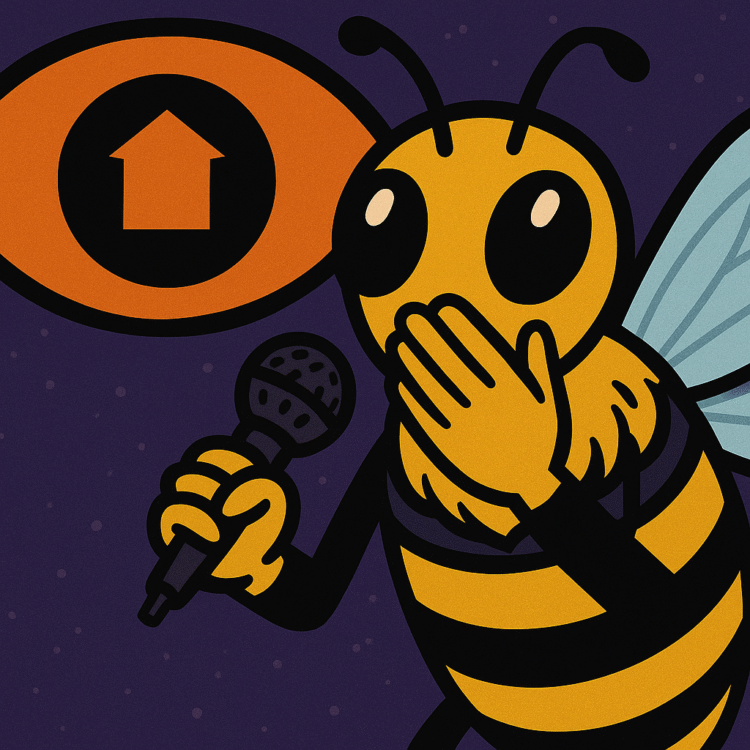
Welcome to Big Brother 27, where the usual surveillance theatre has escalated from “You’re not safe anywhere” to “Your mic is a weapon.” On August 21, TV Insider brought us the spicy reveal: Lauren Domingue was caught in the storage room whispering into Vince’s ear, while conspicuously camouflaging her mic with her hand and posture. Vince teased, “Oh no, your mic fell!” before they both leaned in for a hushed exchange. Lauren sighed, “I think I censor myself too much,” and Vince reassured with: “That’s not that bad.”
Fans on X exploded—as one does when communal rules are more sacred than people TV. Covering your mic, whispering… those are Big Brother infractions. Silent rebellion. Conspiratorial cottage crime. And they want consequences: penalty noms, auto-eviction, full rule enforcement. But production? Silent. The Voice of Big Brother didn’t say a word—no alert, no flashing red light, no dropout mic alarm. Nada.
Welcome to the surveillance paradox: rules exist, but enforcement is wholly performance-based.
1. Whispering—Almost as Bad as Voting Against America
Let’s pause on whispering. House Rules: “Mic lapels must be worn at all times, no whispering… covering mics is forbidden.” Big Brother Rulebook spell it out crystal-clear: whispering = violation TV Insider+1Big Brother Wiki+1. Fans cite the rulebook, tweet #AutoEvictLauren, drop clip memes that audition for worst-kept-secret awards. Production says… crickets.
Isn’t it the height of control fetishism that a reality show treats whispering—something quieter than background noise—as a capital offense? It’s like policing someone who hums during a tornado.
2. Systemic Mic Smothering: A Strategy, Not a Slip
According to TV Insider, Lauren’s behavior isn’t a one-off—“Lauren loves to cover that mic and whisper in people’s ears.” TV Insider Fans tracked several clips, creating micro-libraries of mumbled exchanges and mic sabotage. It’s game strategy, not costume malfunction; a soft coup. And yet production remains passive, as if whispering is an acceptable art form rather than a documented violation.
Reddit lurkers recall past mic dissenters facing immediate reprimand or eviction Reddit+1TV Insider. The double standard? Lauren is either protected or convenient.
3. Two Mic Rules, One Emperor’s New Voice
Big Brother thrives on surveillance. Cameras, mics, live feeds—the house is both prison and Petri dish. Fans say “breaking mic rules should auto-evict.” Violators flag attention; secrets delivered in hushed tones leak alliances, threats, tearful breakdowns, and game-shifting strategies. Production relies on those breaches for drama. So when sweetheart whispering happens, does calling it out risk losing show structure?
In a show that thrives on seeing and hearing everything, Lauren’s whispered plotlines hide in plain soundscape—but production stayed silent. It’s like pressing “pause” on Truth Soup.
4. The Queer Bee’s Stinger: Drama Over Justice
Our poetic sting: this is less about rule enforcement and more about narrative control. Fans clamor for fairness. Lauren’s whisper is flagged as a betrayal of legitimacy; yet production’s silence signals these whisper sessions serve the same show that asks for moral outrage.
Rules only matter when breaking them doesn’t produce Instagram sound bites or pictures worth tweeting. Lauren’s mic-smothering is crunchy bread crumb trail to tension—but enforcement would cancel the satisfaction of simmering heat.
5. The Auto-eviction Chant: Mercy or Moral Panic?
Fans want auto-eviction. Maybe because whispering is the smallest crime that opens us to the largest question: when you trade transparency for spectacle, does rule-breaking become essential to the show?
This is where America meets Big Brother. We claim rules matter—until narrative demand overrides civility. Think about political disenfranchisement, “not being allowed to speak”—whisper expansions aren’t minor. They’re democratic metaphors.
6. Enforcement Theater, Not Accountability
The absence of intervention shows that rules in Big Brother aren’t anchors—they’re accessories. Convenience dictates enforcement. Lauren’s whisper isn’t just rules broken—it’s entertainment earned. A piercing lesson: on reality TV, transparency is curated, not guaranteed.
7. Audience vs. Machine
Fans are outraged: “Where’s the voice that says ‘uncover your mic’?” But audience expectation clashes with production strategy. Big Brother sells the illusion of transparency—until it doesn’t, and fans still cheer. The public loathes hypocrisy but pays admission for it.
8. Whisper Act: A Muted Rebellion
Lauren’s whisper acted like a shadow protest: “I censor myself too much.” That defiance—twinned with mic coverage—is her quiet manifesto. It forces us to ask: what are we watching? A game show or a tribunal of conduct? A point of decorum or a delay of drama?
9. Rulebook vs. Reality
The Big Brother rulebook (and People / Men’s Health pieces reaffirm) says whispering is banned TV InsiderMen’s Health+2Big Brother Wiki+2. Breaking consequences include auto nomination, eviction, or production punishment. But enforcement is discretionary. It’s like signing a contract that says “this clause only applies when we feel like it.” Not just law, but performance.
10. Final Buzz: Reality TV, Real Hypocrisy
In a show that decks itself out as sociology lab, whispering can rewrite alliances faster than any competition. Lauren’s murmur is both symptom and critique: the show sells you surveillance, but hides what matters. She whispers and we watch; the whisper works.
Today, whispering should get you ejected. But production buzzes with higher priorities: ratings, arcs, and the raw sparkle of secrecy.
We call for auto-eviction—not because rules matter, but because they don’t. And yet fans stay hypnotized by the broken mirror of fairness. Whispering has turned into a metaphor for dissent in a world of curated voyeurism.